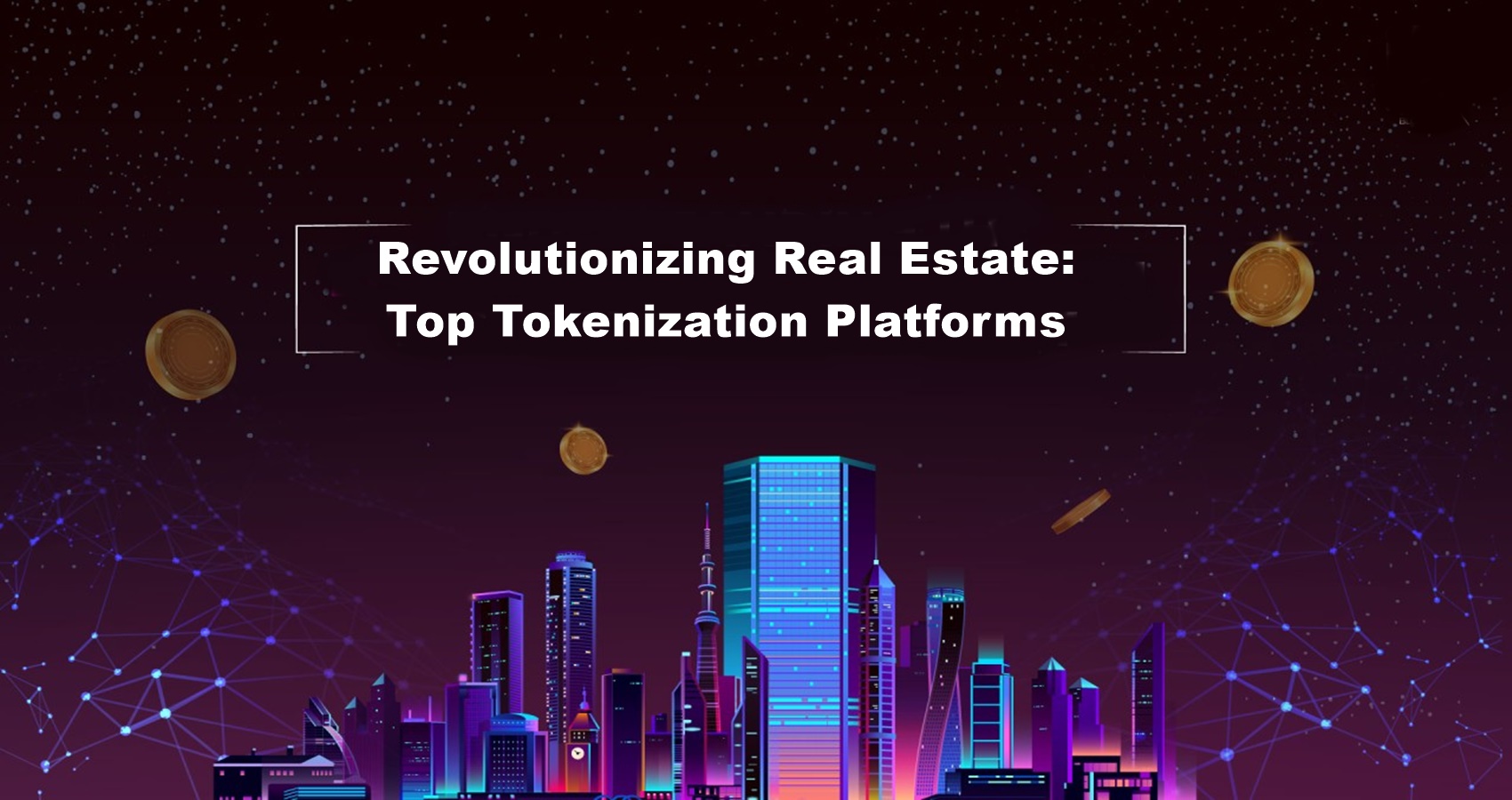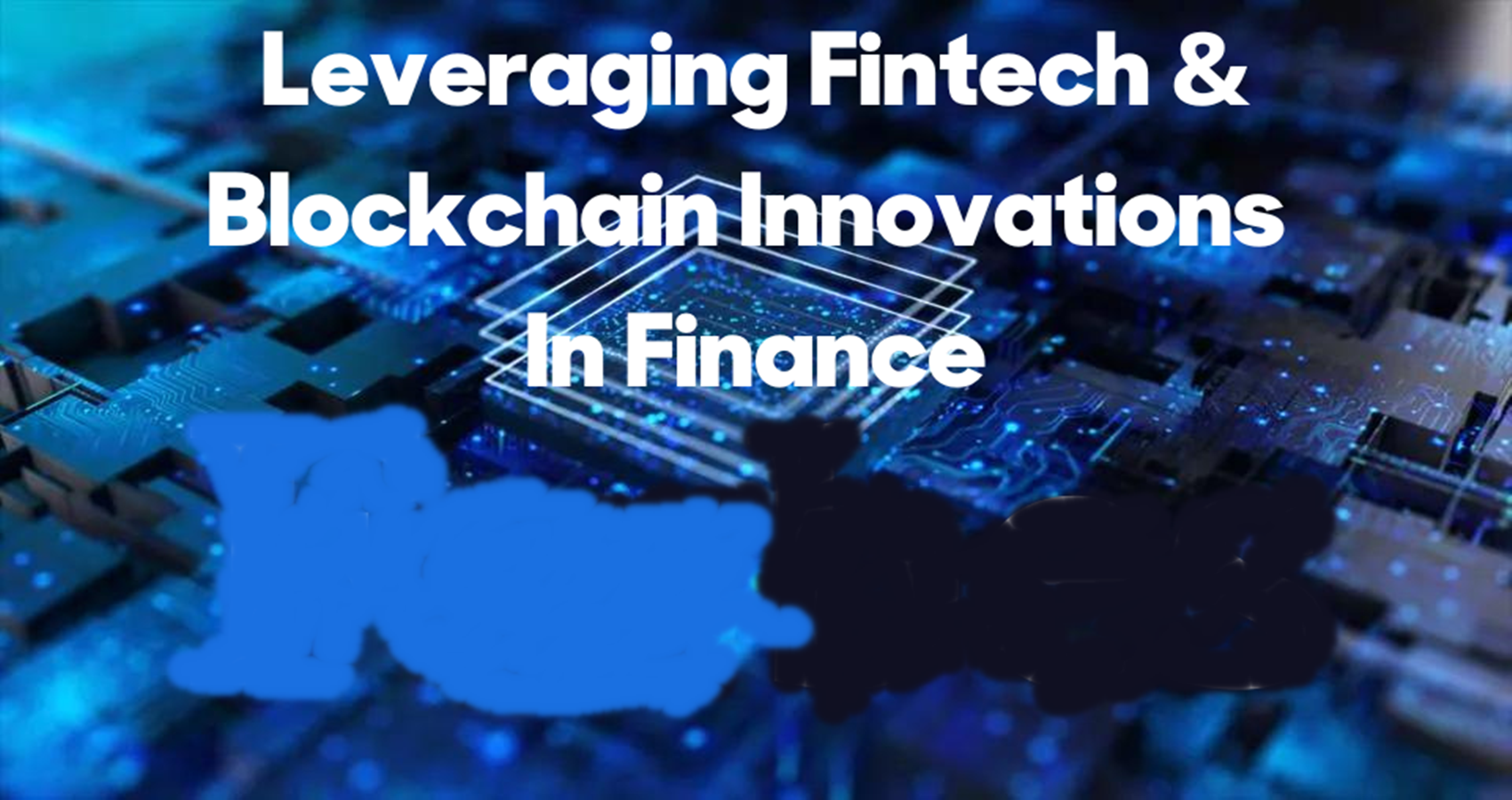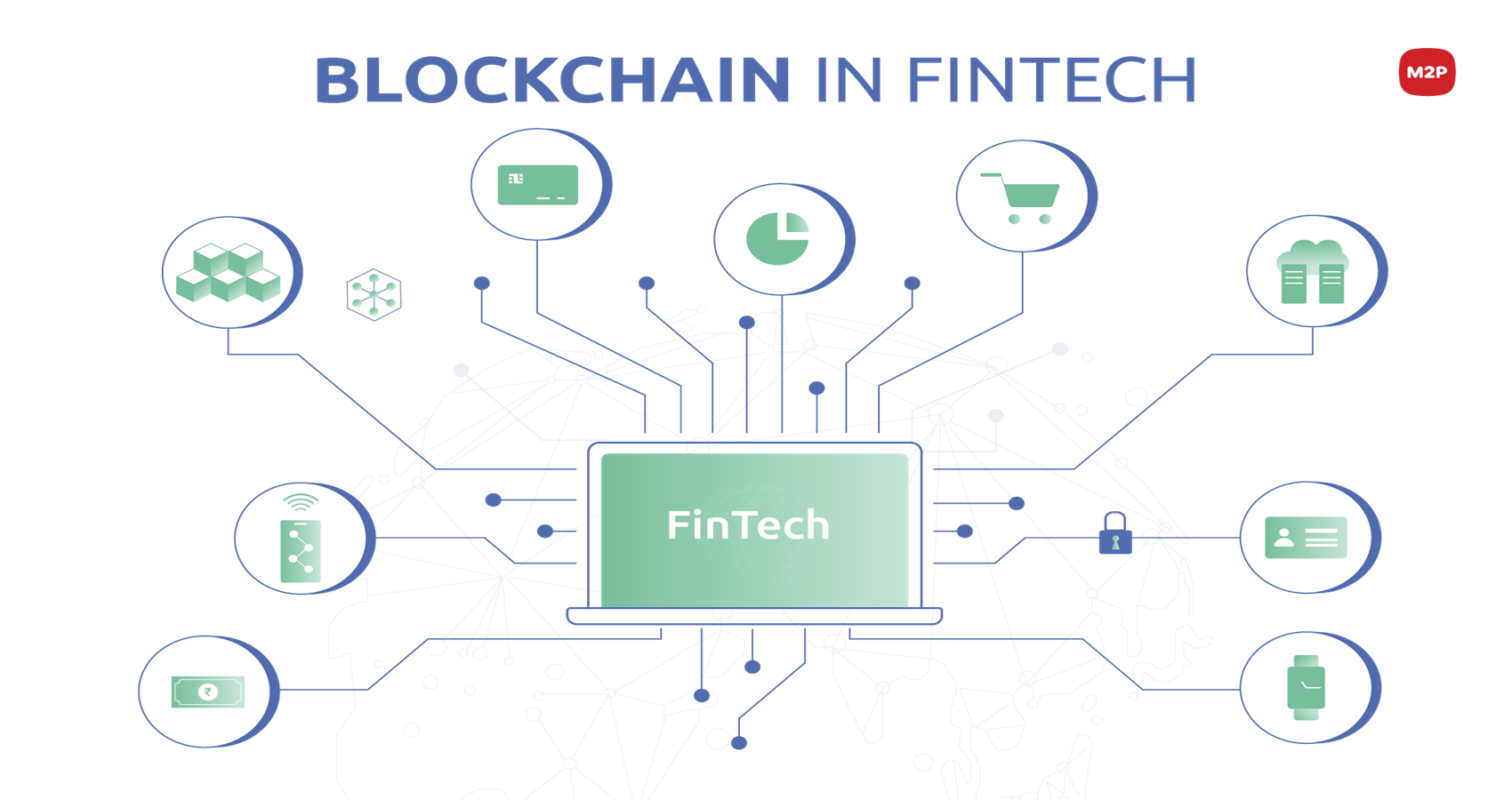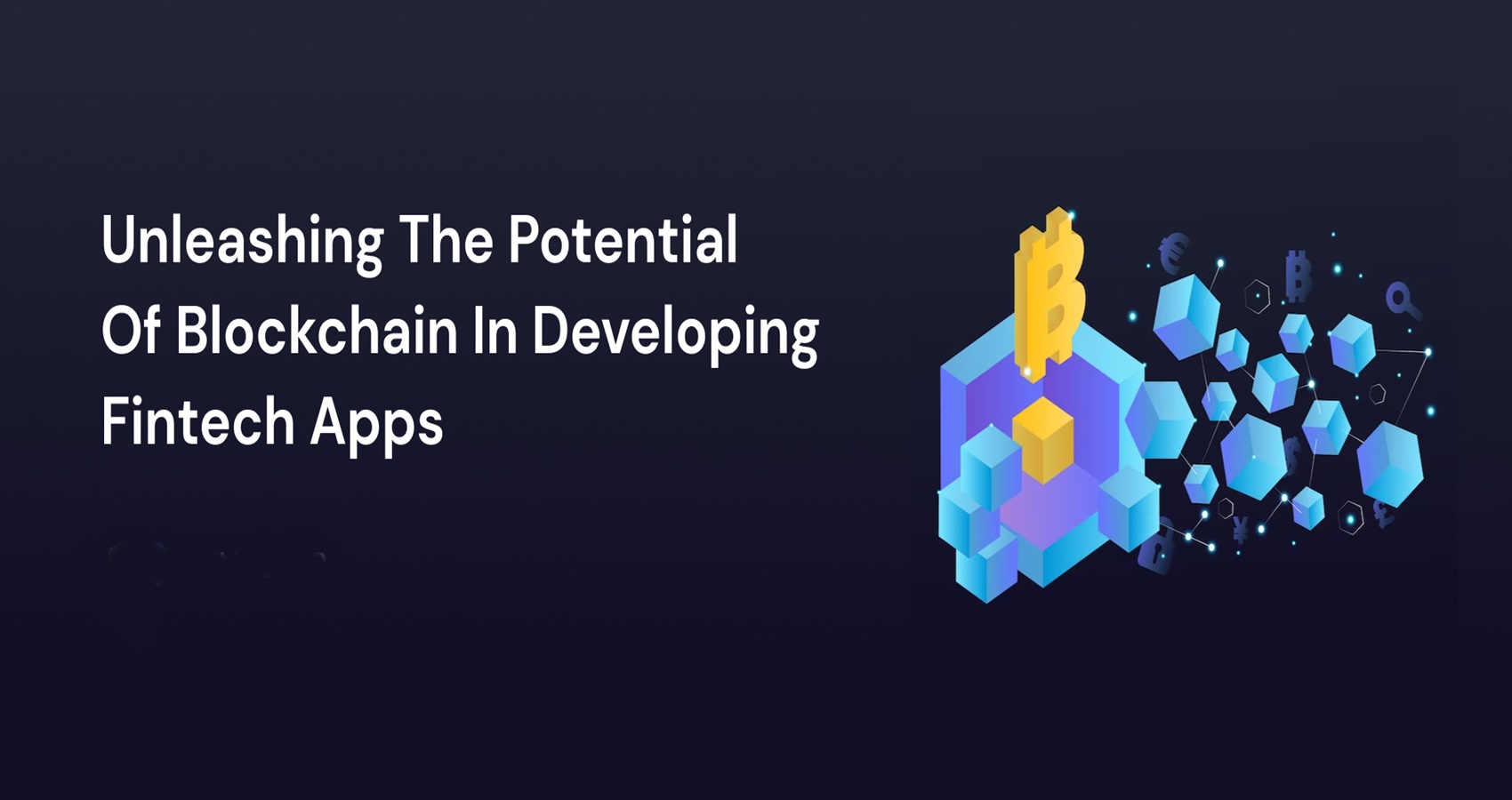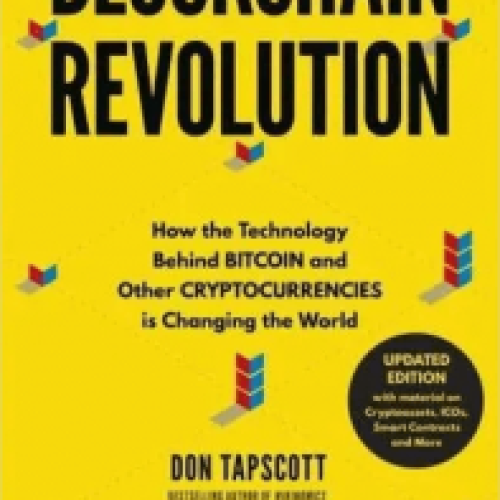In today’s rapidly evolving digital landscape, the real estate industry is witnessing a transformative shift driven by the integration of blockchain technology and tokenization. This innovative approach is revolutionizing the way properties are financed, owned, and traded, opening up new opportunities for investors and democratizing access to real estate investments. Tokenization, the process of representing real-world assets as digital tokens on a blockchain, has gained significant traction in recent years. By fractionizing ownership and enabling fractional investments, tokenization platforms are making real estate investments more accessible and liquid than ever before. In this comprehensive blog post, we’ll explore the concept of real estate tokenization, its benefits, and spotlight some of the top tokenization platforms that are leading the charge in this groundbreaking field. Understanding Real Estate Tokenization Real estate tokenization involves the creation of digital tokens that represent ownership or economic rights in a physical property or portfolio of properties. These tokens are issued and traded on a blockchain network, providing transparency, immutability, and security to the transactions. Each token represents a fractional ownership stake in the underlying real estate asset. This fractionalization allows investors to purchase smaller shares of a property, lowering the barrier to entry and enabling diversification across multiple properties or asset classes. By tokenizing real estate assets, investors can benefit from increased liquidity, as these digital tokens can be easily traded on secondary markets, unlike traditional real estate investments, which often suffer from illiquidity. Benefits of Real Estate Tokenization Real estate tokenization offers numerous advantages over traditional investment methods, including: Top Tokenization Platforms As the adoption of real estate tokenization continues to grow, several platforms have emerged as pioneers in this space, offering innovative solutions and fostering a more accessible and transparent real estate investment ecosystem. Here are some of the top tokenization platforms to watch: As the real estate tokenization landscape continues to evolve, these platforms are at the forefront of innovation, driving the adoption of blockchain technology and tokenization in the real estate industry. By offering streamlined investment processes, increased liquidity, and global access to investment opportunities, these platforms are reshaping the way we perceive and participate in real estate investments. The Future of Real Estate Tokenization While real estate tokenization is still in its early stages, the potential for growth and adoption is immense. As more investors, developers, and asset owners recognize the benefits of this innovative approach, we can expect to see an influx of tokenized real estate assets entering the market. Moreover, as regulatory frameworks evolve to accommodate digital securities and tokenized assets, the real estate tokenization industry is poised for further growth and mainstream adoption. Governments and regulatory bodies around the world are actively exploring the implications of tokenization and developing guidelines to ensure investor protection and market stability. As the technology matures and regulatory clarity increases, we can anticipate a future where tokenized real estate investments become a standard component of diversified investment portfolios, offering investors unprecedented access, liquidity, and transparency. Conclusion Real estate tokenization is revolutionizing the industry, democratizing access to investment opportunities, and fostering a more transparent and efficient ecosystem. By leveraging blockchain technology and tokenization platforms, investors can benefit from increased liquidity, fractional ownership, and global market access. As the adoption of real estate tokenization continues to grow, platforms like Inveniam Capital Partners, RealT, Polymath, Harbour, AssetBlock, Reinno, BrickMark, Tokenize, BrickX, and Meridio are leading the charge, offering innovative solutions and paving the way for a more accessible and interconnected real estate investment landscape. As investors, developers, and asset owners embrace the transformative power of tokenization, the future of real estate investments promises to be more democratized, transparent, and efficient than ever before.
Fintech vs Blockchain: Understanding the Differences and Relationship
Fintech and blockchain are two of the hottest technologies transforming the financial services industry. Often used in tandem, fintech and blockchain also have distinct differences. In this comprehensive guide, we’ll examine what each technology entails, their relationship to one another, use cases, major players, and the future outlook. What is Fintech? Fintech is an umbrella term for financial technology that is used to improve and automate the delivery and use of financial services. At its core, fintech is utilized to help companies, business owners and consumers better manage their financial operations, processes, and lives by utilizing specialized software and algorithms that are used on computers and smartphones. Fintech covers a broad range of innovations designed to improve everything from banking, investing, fundraising, and money transfers to personal financial management and insurance services. Fintech also includes the development and use of cryptocurrencies like bitcoin. Some of the most common fintech categories include: The biggest benefits of fintech include automating manual processes, cutting costs, improving security, increasing transparency, and providing faster and more convenient services. Fintech is able to develop these improvements through advanced technologies like blockchain, artificial intelligence (AI), big data analytics and more. For example, the traditionally slow and cumbersome process of applying for loans and credit cards can now take minutes instead of days with integrated digital solutions. Wealth management services and transactions that once required human advisors and brokers can now be handled digitally 24/7 with sophisticated robo-advisors and payment systems. Overall, fintech innovation is helping streamline and modernize the financial services sector. Financial institutions that fully embrace fintech solutions and developments will be best positioned for the future. According to research firm IDC, global spending on fintech solutions will reach $309.6 billion in 2024 versus $115.3 billion in 2019. This represents a compound annual growth rate (CAGR) of 24.8%, highlighting the growing importance and adoption of fintech. Key Fintech Companies & Innovations Some of the biggest and most disruptive fintech companies include: These companies represent a fraction of the fast-growing fintech landscape that is delivering innovative solutions across nearly every aspect of personal and commercial finance. Incumbent financial institutions are also diving head first into fintech with major investments, partnerships, and in-house technology development. What is Blockchain Technology? Now that we’ve covered the basics of fintech, let’s examine blockchain technology and how it relates to fintech innovation. A blockchain is a distributed ledger database that maintains continuously growing records stored across a decentralized peer-to-peer network. One of the defining features of blockchain technology is that data on the ledger is stored in blocks that are linked together via cryptographic validation to form an unalterable chain. Instead of being managed by a central authority, blockchain networks rely on distributed consensus mechanisms to validate transactions, thus eliminating the need for intermediaries. Transactions on a blockchain network are also immutable, which helps prevent fraud and tampering. Blockchain was first pioneered in 2008 as the underlying distributed ledger technology enabling Bitcoin digital currency transactions. However, blockchain technology has evolved significantly since Bitcoin and has endless potential applications across industries. Some key capabilities and differentiators of blockchain technology include: These technical qualities enable blockchain technology to facilitate trusted peer-to-peer transactions while streamlining business processes, reducing costs, and enhancing security. Blockchain networks can also be either public and permissionless like Bitcoin and Ethereum, or private and permissioned for enterprise needs. According to Allied Market Research, the global blockchain technology market was valued at $3.67 billion in 2020 and will reach $393.16 billion by 2030. This highlights the surging popularity and demand for blockchain solutions. Major Blockchain Platforms & Cryptocurrencies These leading blockchain platforms represent the diversity of potential blockchain applications across payments, finance, supply chain management, healthcare, real estate, and more. Both fintech and blockchain firms are leveraging these blockchain networks to develop game-changing solutions. How Fintech and Blockchain Relate Now that we’ve provided an overview of fintech and blockchain independently, let’s discuss how they relate to one another. While they are distinct technologies, fintech and blockchain have a complementary relationship and are increasingly intersecting: Clearly fintech and blockchain go hand-in-hand, which is why financial institutions and technology firms are strategically embracing both to remain relevant and gain a competitive advantage. Let’s take a closer look at some real-world examples of fintech and blockchain technology intersecting. Fintech and Blockchain Use Cases There are already countless examples of fintech leveraging the capabilities of blockchain technology across the financial sector: Digital Payments Lending & Fundraising Investing & Trading Insurance Identity & Security The applications of fintech and blockchain will only continue to expand as more opportunities arise to streamline financial services and processes with greater security, transparency, automation, and speed. Major Industry Trends Both the fintech and blockchain spaces are rapidly evolving. Here are some of the major trends that are emerging: Financial services are undergoing a technology-driven metamorphosis thanks to these developments. Both fintech startups and incumbent players are preparing for this new future or risk obsolescence. Organizations must foster company cultures that embrace innovation, leverage modern tech stacks, attract top tech talent, and deliver an optimal customer experience both digitally and physically. Companies able to master this balance between legacy banking and modern digital innovation will determine the future fintech and blockchain landscape. The Future Outlook The outlook for both fintech and blockchain moving forward remains highly positive: While the COVID-19 pandemic created some temporary headwinds for the financial sector, most industry observers agree it accelerated the transition to digital banking, mobile finance, online investing, and cryptocurrency adoption by compressed years’ worth of change into a short time frame. This paradigm shift won’t be reversed even as the world emerges from the pandemic. Consumers now have a taste for the conveniences and advantages of digital financial services made possible by fintech and blockchain innovation. These technologies undeniably represent the future. The most successful financial services firms will transform their customer experience to meet new expectations while leveraging intelligent automation, APIs, cloud computing, AI and blockchain technology to provide hyper convenient, secure and
Top Fintech Companies Leveraging Blockchain Technology
Blockchain and fintech are two rapidly evolving technologies transforming the financial services industry. Many innovative fintech companies are strategically adopting blockchain solutions to improve services, reduce costs, enhance security and respond to shifting consumer expectations. In this comprehensive guide, we examine 25 of the top fintech companies utilizing blockchain technology across banking, payments, investing, insurance and more. Leading Fintech Blockchain Companies Banking & Finance Payments Wealth & Investment Lending Insurance Enterprise Services Real Estate Identity & Security Venture Capital This list provides just a sampling of the many impressive companies applying blockchain to accelerate financial innovation across a diversity of fintech sectors. How Fintech Firms Utilize Blockchain Technology Financial institutions and fintech startups are leveraging the unique attributes of blockchain technology in creative ways: These examples demonstrate how fintech companies are applying blockchain’s core technical capacities to overhaul legacy processes and deliver new digital financial experiences. Benefits of Blockchain Integration for Fintech Leveraging blockchain provides compelling advantages for fintech innovators: These far-reaching benefits are driving exponential fintech blockchain adoption. Incumbent financial giants and emerging startups alike recognize blockchain’s huge potential to transform services. Trends Among Leading Fintech Blockchain Firms Several trends have emerged among cutting-edge fintech companies embracing blockchain: Fintech is increasingly becoming synonymous with blockchain technology. The most disruptive fintech companies recognize blockchain’s capacity to fundamentally transform financial services. Incumbents are also investing heavily in blockchain R&D and innovation labs to remain relevant. Challenges Facing Blockchain Adoption in Fintech For all its promise, blockchain integration in fintech faces several challenges: Despite these hurdles, the world’s leading financial institutions, central banks and technology partners are collaborating to address them through R&D initiatives like the World Economic Forum Cryptocurrency Council, MIT Digital Currency Initiative and enterprise blockchain consortiums. Advances in cryptography, infrastructure upgrades like 5G and eth2.0, decentralized identity solutions, compliant tokenized assets, and global regulatory alignment will collectively help accelerate mainstream blockchain adoption in fintech. Future Outlook Is Bright The future shines brightly for fintech blockchain integration and innovation. According to Gartner, 90% of today’s enterprise blockchain implementations will be production-ready by 2022. We can expect: Blockchain technology and fintech applications will continue converging to bring greater access, personalization, automation, security and efficiency to financial services globally. Despite current growing pains in this nascent arena, the future is undeniably bright for those pioneering the intersection of fintech and blockchain.
Does Bitcoin Have A Use Case? How Blockchain is Disrupting Fintech
Bitcoin has been around for over a decade now, yet its adoption and use cases remain limited. Many still view Bitcoin mainly as a speculative investment asset rather than a viable digital currency or payment system. However, Bitcoin and its underlying blockchain technology are starting to gain real traction in the fintech industry. An increasing number of financial institutions are exploring ways to leverage blockchain to improve efficiency, security and transparency in financial transactions. In this blog, we’ll look at some of the key use cases and examples of how Bitcoin and blockchain technology are disrupting the fintech industry. An Introduction to Bitcoin and Blockchain Bitcoin is a decentralized digital currency that was created in 2009 by an anonymous person or group using the name Satoshi Nakamoto. It runs on a distributed public ledger called blockchain that records all transactions chronologically and publicly. The blockchain is essentially a decentralized database that is managed by a peer-to-peer network of computers. Bitcoin transactions are validated and recorded through a process called crypto mining, where participants called “miners” use specialized software and hardware to solve complex cryptographic algorithms. This process secures the network and ensures consensus on the ledger. The decentralized and transparent nature of blockchain provides some major advantages over traditional financial systems: These features make blockchain technology highly appealing for reinventing processes across the fintech sector, from payments to settlements to record keeping and more. Major Use Cases of Bitcoin and Blockchain in Fintech Many financial institutions and fintech companies have already recognized the disruptive potential of blockchain. Here are some of the key areas where Bitcoin and blockchain are adding real value in fintech: Payments and Money Transfers One of the most obvious applications of Bitcoin is as a payment method. Major companies like Microsoft, AT&T, Twitch and Namecheap allow customers to pay using Bitcoin. Although its volatility has limited its adoption so far, Bitcoin offers easier and faster cross-border money transfers compared to legacy systems like SWIFT. Services like Abra use blockchain and smart contracts for quick global money transfers. Major payment giants have also jumped into blockchain-based payments including Mastercard and Visa. In 2021, Visa settled a transaction using the stablecoin USDC on the Ethereum blockchain. Lending and Credit Services Blockchain-based lending eliminates middlemen like banks and allows peer-to-peer lending services. SALT Lending and ETHLend allow users to lend and borrow cryptocurrencies like Bitcoin using smart contracts on Ethereum. This streamlines lending processes. Another key use of blockchain is in credit services. Traditional credit reports are limited, but blockchain-based data can create decentralized credit scores by leveraging transaction histories. Startups like Bloom are building blockchain-powered credit scoring services. Investment and Trading Platforms Blockchain is also enabling innovative investment and trading opportunities. Decentralized exchanges like Uniswap allow trading crypto assets like Bitcoin and Ethereum in a trustless manner. Platforms like Polymath allow creating and issuing financial securities on blockchain. Harbor provides a compliant way to trade private securities using blockchain. This increases access and liquidity for investments. Insurance Blockchain creates opportunities to streamline insurance processes. Smart contracts can automate claim payouts. Etherisc offers decentralized insurance products. Platforms like Teambrella enable peer-to-peer coverage based on blockchain voting. Data recorded immutably on blockchain also reduces insurance fraud. The InsurWave platform by EY aims to tackle fraud in marine insurance. Identity and KYC Verification Blockchain-based digital IDs can simplify identity verification and onboarding processes. Platforms like Civic and Bloom use cryptographic identity verification on blockchain. This allows instant, secure and paperless Know Your Customer (KYC) and Anti-Money Laundering (AML) checks. Cambridge Blockchain offers an identity platform for financial institutions. Security Token Offerings Blockchain also enables new models of fundraising for startups through Security Token Offerings (STOs). These allow issuing tokenized securities backed by assets like company equity or real estate. Platforms like Polymath and Securitize enable compliant STOs. STOs open up investment opportunities to global retail investors that earlier required high net worth. STOs can also have inbuilt automation for regulatory compliance, shareholder voting etc. Supply Chain Finance Blockchain improves transparency in supply chain finance. It enables real-time tracking of invoices and assets as they move through multiple parties. Platforms like TradeIX and Prime Revenue use blockchain for faster bill payments, invoice factoring and payment assurance. This provides greater visibility and access across fragmented global supply chains. Anti-Money Laundering and Surveillance Blockchain analysis firms like Chainalysis and TRM Labs provide AML solutions to financial institutions by tracking fund flows across blockchains. Platforms like ComplyAdvantage use AI and blockchain data to screen transactions and detect financial crimes. Real-time monitoring on blockchain makes AML screening more robust. Clearing and Settlement Blockchain has the potential to greatly simplify post-trade processes. Platforms like Overstock’s tZERO aim to clear and settle trades on blockchain. This could eliminate lengthy settlement cycles and reconciliation issues. Several consortia like Fnality and Utility Settlement Coin are developing blockchain-based settlement platforms. Project Hydrogen by JPMorgan aims to use blockchain for interbank settlements. Accounting and Auditing With data immutably recorded on blockchain, auditing and accounting processes can be simplified. Complete transparent records improve regulatory reporting and compliance. Startups like Balanc3 offer blockchain-based triple-entry accounting systems. Platforms like Ketchup by Deloitte simplify multi-party audit processes by maintaining a unified ledger viewable to all stakeholders. This enhances transparency in accounting. The Promise and Progress of Blockchain Adoption in Fintech The examples above reveal the vast potential of blockchain and Bitcoin across nearly every facet of financial services. According to PWC’s Global Fintech Report, 77% of financial institutions are expected to adopt blockchain technology by 2020. Many banks like JP Morgan and Goldman Sachs are actively experimenting with blockchain through inhouse projects and pilots. Leading stock exchanges like ASX and SIX Swiss Exchange are using blockchain technology to overhaul their core trading and settlement infrastructure. Central banks are also investigating Central Bank Digital Currencies (CBDCs) like the digital euro and e-CNY that would leverage blockchain rails for stablecoins issued directly by monetary authorities. However, there are still significant challenges to large-scale adoption: Despite these limitations,
How Blockchain Can Transform Governments: Key Use Cases and Examples
Governments around the world are investigating how blockchain technology can make public sector operations more efficient, transparent and secure. Blockchain’s inherent features like immutability, decentralization and cryptographic security lend themselves well to reinventing a variety of government functions. In this post, we’ll examine some of the most promising applications of blockchain across major branches of government like land registries, election systems, document management, identity services, benefits disbursement and more. An Introduction to Blockchain Technology Before we look at specific use cases, let’s briefly examine what blockchain technology is and why governments are so interested in it. A blockchain is essentially a distributed digital ledger that records transactions or data immutably using cryptographic functions. It is decentralized, meaning it isn’t controlled by any single entity but rather uses a consensus mechanism to verify transactions. Some key attributes make blockchain appealing for government use: These characteristics can address many common problems faced in public sector operations today like record tampering, leakages, auditing delays, service inefficiencies and lack of transparency. Blockchain offers a secure shared source of truth for multi-agency environments. Let’s look at some specific use cases now. Land Registries One major government application of blockchain is in land registries and property records management. Several countries have piloted or launched blockchain land registries including Sweden, Georgia, Ukraine, India and Dubai. Key benefits of a blockchain land registry: By streamlining land administration and providing tamper-proof public records, blockchain land registries establish stronger property rights and boost overall efficiency. Voting Systems Another major public sector application is in making elections more secure and transparent. Blockchain-based voting could address security flaws in current election systems ranging from voter impersonation and fraudulent vote counts to inaccurate records and improper vote transfers. Some potential benefits of blockchain voting: Several countries have tested blockchain-based voting including the City of Zug in Switzerland, the Moscow Municipal Duma elections and the Democratic primaries in West Virginia. Wider adoption is expected once the technology matures. Government Records Management Managing vast amounts of data across agencies is a huge challenge. Blockchain enables creating immutable unified repositories of government records like case files, project documents or policy papers. Benefits include: Startups like GovBlocks and eGovern provide blockchain document management solutions for public sector needs. The Indian state of Maharashtra is using blockchain for managing public records. Identity Management Digital identities are critical for smooth delivery of government services. Blockchain-based identity management offers several benefits: Estonia has a well-established blockchain-based e-Identity system for citizens to access both private and public services digitally. ID2020 is a nonprofit focused on blockchain identity solutions. Supply Chain Management Governments have highly complex supply chains across services like healthcare, defense, infrastructure and more. Blockchain brings greater transparency and accuracy into procurement, logistics and vendor management. Key benefits: The Government of Andhra Pradesh in India implemented a blockchain-based supply chain for sand mining, transport and sales to reduce illegal mining and cash transactions. Government blockchain solutions by IBM and SAP also enable public sector supply chain reforms. Smart Contracts Smart contracts are self-executing lines of code that implement terms of an agreement on blockchain. They have wide applications in government for automating processes: Automation enhances speed, accuracy and transparency of government workflows. Dubai has launched the Smart Dubai initiative to implement blockchain smart contracts across services. Final Thoughts This post covers some of the most transformative use cases of blockchain in government. Wider adoption faces some hurdles like scalability of blockchain systems, management of decentralized infrastructure, and need for greater legal recognition of blockchain records. However, blockchain has the potential to significantly boost efficiency, security and transparency across nearly all aspects of public administration from data keeping and compliance to service delivery. By streamlining records management and automating complex processes, blockchain can help build trust in government. Like the Internet did for communications, blockchain is an epochal technology platform that could transform governance and enhance public sector performance. It behooves policy makers and government IT departments to proactively explore fitting blockchain into their modernization roadmaps. Focus Keyword: Blockchain technology in government, Government blockchain applications, Blockchain use cases in public sector, Blockchain for government services, Government data integrity with blockchain, Blockchain for secure voting systems, Transparency in government with blockchain, Supply chain management in government using blockchain, Blockchain for identity management in government, Smart contracts for government contracts, Blockchain for land registry and property records, Blockchain for secure document management in government, Regulatory compliance using blockchain in government, Enhanced cybersecurity for government data with blockchain, Cost savings and efficiency gains in government operations with blockchain.
Decentralized Finance (DeFi): Unleashing the Power of Blockchain in Fintech
Decentralized finance (DeFi) is one of the most transformational innovations stemming from blockchain technology. By eliminating financial intermediaries, DeFi aims to make financial services accessible to anyone with an internet connection. In this comprehensive guide, we’ll examine what decentralized finance entails, its core components and use cases, relationship to fintech and blockchain, benefits over traditional finance, challenges, and outlook for the future. What Is Decentralized Finance (DeFi)? Decentralized finance, commonly referred to as DeFi, is a blockchain-based form of finance that does not rely on central financial intermediaries such as brokerages, exchanges, or banks. Instead, DeFi utilizes smart contracts on blockchains, cryptocurrency assets, and decentralized applications (dApps) to provide financial services to users. These can include lending, borrowing, derivatives, insurance, payments, asset management, and more. By eliminating the need for trusted third-party intermediaries that act as gatekeepers in traditional finance, DeFi allows for accessible, transparent, and permissionless financial services. Anyone in the world can leverage these decentralized financial networks, regardless of geography, wealth, or credit status. The DeFi ecosystem has been built primarily on top of public, open-source blockchains like Ethereum, Terra, Solana, Avalanche, and Polygon. These infrastructures allow developers to create decentralized apps (dApps) that connect users directly to DeFi services in a peer-to-peer manner. No bank or brokerage account is required. Some of the most widely used types of DeFi platforms include: By combining aspects of blockchain technology, digital assets, dApps and financial services, the DeFi ecosystem aims to recreate – and improve upon – the traditional financial system in a decentralized architecture. The Relationship Between DeFi, Blockchain & Fintech DeFi is entirely built using blockchain infrastructure and represents one of the most transformational fintech use cases of blockchain technology. Let’s briefly examine these relationships: Blockchain Enables DeFi DeFi would not be possible without the core components of blockchain technology like: DeFi Is Fintech Innovation DeFi stands at the cutting edge of fintech innovation by transforming financial services including: By leveraging blockchain infrastructure to recreate the legacy financial system in a transparent, accessible, decentralized manner, DeFi represents one of the most exciting areas of fintech innovation. Mainstream Adoption Challenges While DeFi shows enormous promise, mainstream adoption still faces challenges like: However, billions in capital now flow through DeFi as it gradually matures. The long-term growth trajectory remains highly compelling. Core Components of the DeFi Ecosystem Several key components comprise the DeFi ecosystem. These include: Decentralized Exchanges Also known as DEXs, decentralized exchanges allow for direct trading of crypto assets in a permissionless manner. Rather than a central authority facilitating trades, DEXs use automated market maker algorithms and liquidity pools underpinned by smart contracts. Leading DEXs include Uniswap, PancakeSwap, and SushiSwap. Stablecoins Stablecoins are cryptocurrencies pegged to another asset like the US dollar to minimize volatility, facilitating their use in financial applications. Popular stablecoins driving DeFi adoption include Tether (USDT), USD Coin (USDC), and DAI. Oracles Oracles are blockchain data feeds that connect real-world information to smart contracts like pricing data for crypto assets. They are essential for advanced DeFi functionality. Major DeFi oracles include Chainlink and Band Protocol. Lending & Borrowing Platforms DeFi lending platforms allow users to lend crypto assets to earn interest or borrow against crypto collateral without credit checks. Leading platforms include Aave and Compound. Tokenization Turning assets like commodities, real estate, and securities into digital tokens on blockchains expands their accessibility and usability. DeFi allows frictionless trading of tokenized assets. Identity & Security On-chain identity verification and innovative security protocols like zero-knowledge proofs are necessary for preserving privacy and combating fraud in DeFi. Infrastructure Scalable blockchain networks like Ethereum, Solana, Terra and Polygon provide the underlying infrastructure for the DeFi ecosystem. These components work in conjunction to deliver the full suite of decentralized financial services available today and expand possibilities for the future. Key Use Cases and Innovations Decentralized finance is streamlining and disrupting traditional finance across a multitude of use cases: Global Payments Platforms like RippleNet allow faster and less expensive cross-border crypto payments. Decentralized Trading DEXs facilitate trustless crypto trading and price discovery without intermediaries. Lending & Borrowing DeFi protocols like Aave and Compound offer crypto-collateralized loans and borrowing with programmatic interest rates. Investing & Portfolio Management Automated robo-advisors like Yearn Finance help optimize earning yield on crypto assets. Derivatives Smart contract powered derivatives like options, futures, and swaps can be created on Synthetix and other DeFi derivatives platforms. Tokenized Assets Real world assets can be represented by digital tokens using blockchain technology, unlocking new value like accessibility and programmability. Insurance DeFi insurance protocols like Nexus Mutual offer pooled coverages governed by members without human intermediaries. Crowdfunding & Fundraising Tokenized assets allow virtually anyone to contribute capital and invest in projects by purchasing governance and equity tokens. Identity & Reputation Systems On-chain identity and reputation scoring helps address issues like fraud and default risks that arise from anonymity. Stablecoins Fiat-pegged cryptocurrencies like DAI provide price stability, critical for payments, storing value, and serving as collateral in lending pools. These examples demonstrate how DeFi is reinventing traditional personal and commercial finance to be more transparent, equitable, accessible and adaptable. Benefits of Decentralized Finance Compared to legacy finance, decentralized financial networks offer several compelling advantages: By rebuilding finance on transparent, decentralized blockchains and autonomous smart contracts, DeFi solves many pain points and unlocks new possibilities. Challenges Facing DeFi Adoption Despite its enormous promise, DeFi still faces some hurdles to mainstream adoption including: Despite these challenges, the overall pace of innovation across blockchain technology, decentralized infrastructure, crypto asset offerings and consumer onboarding will help the DeFi ecosystem flourish over time. Future Evolution of DeFi The future looks extremely promising for decentralized finance to continue gaining adoption and reinventing finance: The DeFi genie is out of the bottle. Combine engaged communities of blockchain developers, enthusiastic retail users, and institutional capital flows, and the future of decentralized finance shines brightly. It even has the long-term potential to supplant legacy finance entirely through evolutionary disruption. Conclusion Decentralized finance represents one of the most groundbreaking innovations stemming from

